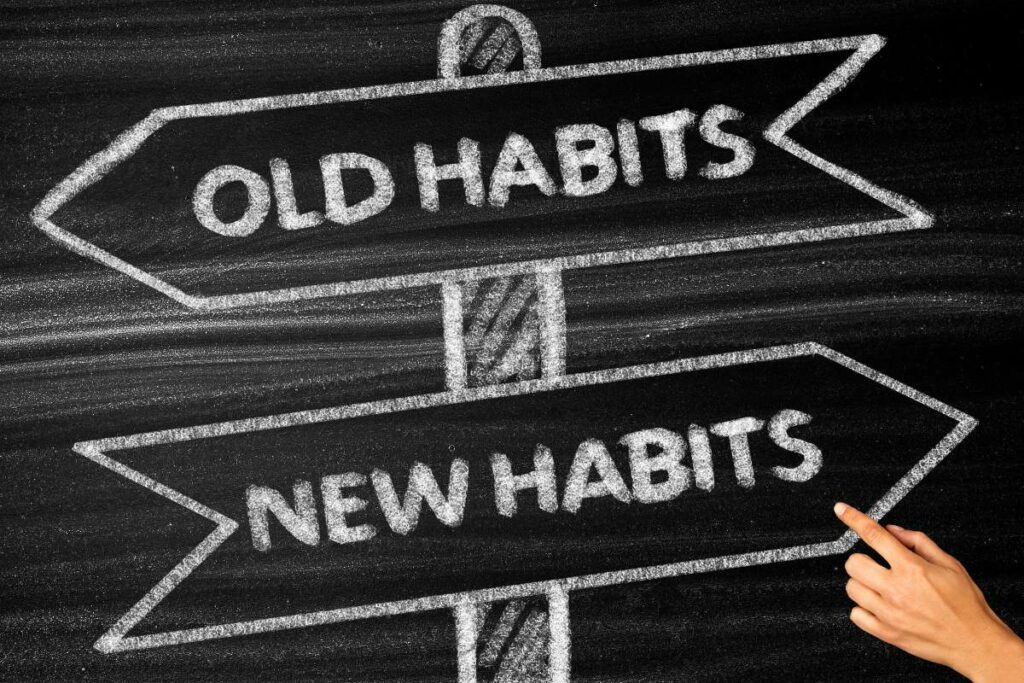A Comprehensive Guide to Mindful Eating: Benefits, Techniques, and More
Let’s talk food! But not just any food – I’m talking about the experience of truly savoring your meal, relishing every flavor, every texture, every delightful moment.
Ever heard of mindful eating? It’s not some mystical, unattainable concept—it’s about truly being in the here and now, totally immersed in the act of eating.
Think about it. When was the last time you really tasted your food, without distractions or thoughts of what comes next?
Mindful eating is all about this – savoring every mouthful, being aware of how it makes you feel, and understanding your body’s hunger and fullness cues.
And it’s not just a trend, but an age-old practice rooted in mindfulness— that cool meditative state where you’re fully tuned into the present.

So, why should you care? Well, mindful eating does more than just make meals more enjoyable—it’s a revolutionary way to change your relationship with food.
Imagine being free from mindless munching and actually understanding what your body needs and wants. Sounds pretty amazing, right? Let’s dig deeper into this guide to mindful eating for a deliciously mindful world.
This post may contain affiliate links, which helps keep this content free. Please read our disclosure for more info.
The Science Behind Mindful Eating
Now, let’s get a bit nerdy for a second and explore the research behind mindful eating! You see, mindful eating isn’t just about feeling good and enjoying your food.

There’s a load of scientific evidence supporting why this practice is good for us.
First off, mindful eating has been proven to do wonders for your dietary habits. By focusing on the experience of eating, you’ll start to recognize your body’s cues for fullness.
Say goodbye to that uncomfortable “stuffed” feeling because overeating is about to become a thing of your past!
Plus, have you ever heard of the “clean plate” syndrome? You know, that compulsion to finish everything on your plate, even when you’re already full, just because it’s there?
Well, mindful eating can help tackle that too! One study published in the Journal of Obesity in 2011 pointed out that mindful eating can be super effective in managing weight and preventing eating disorders.
And guess what else? Mindful eating can also reshape your psychological relationship with food!
Let’s face it, we’ve all had those moments where we reach for a chocolate bar or a bag of chips when we’re feeling down.

Emotional eating, meet your match! Mindful eating helps us to break this cycle, encouraging us to tune in to both the physical and emotional sensations we experience when eating.
So, no, mindful eating isn’t just about slowing down your meals and savoring your bites (although, trust me, that’s a pretty great part of it).
It’s backed by solid science and can lead to improved health, better eating habits, and a happier relationship with food. How cool is that?
The Benefits of Mindful Eating
Now that we’ve gone through the science, let’s talk about all the cool benefits that come along with mindful eating.
Weight Management: Here’s the thing – when you eat mindfully, you’re paying attention to your body’s signals. You start to recognize when you’re genuinely hungry, and perhaps even more importantly, when you’re full.

This awareness reduces the likelihood of overeating, helping you maintain a healthier weight without the need for crazy diet plans or restrictive eating. It’s about understanding and honoring your body’s needs.
Improved Digestion: Remember how we talked about savoring every bite? Well, that doesn’t just make your food taste better.
Eating slowly and thoroughly chewing your food can significantly improve digestion and reduce digestive discomfort.
Reduced Stress: Ever felt that wave of guilt after indulging in a “cheat meal”? Or the stress that comes with trying to stick to a strict diet plan?

Mindful eating is here to kick those feelings to the curb. By fostering a non-judgmental attitude toward food, mindful eating helps you shake off food-related stress and accept that all food can have a place in a balanced lifestyle.
Related Article: 7 Benefits of Stress Reduction in Women
Enhanced Enjoyment: One of the greatest things about mindful eating is that it makes every meal a little celebration.
By focusing on the sensory experiences—the look, smell, taste, and texture of your food—you learn to truly savor and enjoy your meals. Every bite becomes a culinary adventure!
Mindful eating is a real game-changer. It’s not just about eating healthily, but about transforming your whole relationship with food. It’s about pleasure, balance, and respect for your body’s needs and desires.
How to Practice Mindful Eating
Practicing mindful eating involves more than just eating slowly or without distraction. Here are some techniques to start your mindful eating journey:
Engage Your Senses: This is your chance to channel your inner food critic. Pay close attention to the look, smell, taste, and texture of your food. Is your apple crisp and juicy?

Does your soup have a rich, hearty aroma? How do the flavors change as you chew? Engaging your senses is a crucial part of mindful eating, and it turns every meal into a sensory adventure.
Related Article: 10 Healthy Soup Recipes for Weight Loss
Listen to Your Body: Mindful eating is all about tuning in to your body’s signals. Are you really hungry, or are you just bored or stressed?
And when you’re eating, pay attention to when you start to feel full. Your body has its own wisdom, and learning to listen to it is a powerful step towards healthier eating habits.
Eat Slowly: This isn’t a race, my friend! Take your time and chew your food thoroughly. Not only does this help with digestion, but it also gives you a chance to truly savor every bite.

Plus, it gives your body time to send those “I’m full” signals before you’ve eaten more than you need.
Limit Distractions: In our busy lives, it’s easy to eat while we’re doing other things – watching TV, scrolling through our phones, even working.
But to eat mindfully, you need to clear away those distractions. Make eating a standalone activity. You might be surprised by how much more you enjoy your meals when you’re fully present.
This isn’t about perfection; it’s about making small, mindful changes to your eating habits. So, don’t worry if you find it tricky at first. Like any new skill, it gets easier with practice.
Overcoming Common Challenges in Mindful Eating
Starting any new habit can feel like an uphill battle sometimes, and mindful eating is no different.
You might find yourself slipping back into old routines or grappling with emotional eating. But don’t worry—remember, it’s all part of the journey. Let’s tackle some common challenges and find ways to overcome them:
Breaking Old Habits: Change is hard, and old habits die hard, don’t they? You might find yourself forgetting to eat mindfully, especially when you’re super busy or stressed.

It’s okay, and it’s completely normal. The key is consistency and patience. Just keep trying, and soon enough, mindful eating will become second nature.
To help you stay on track, you might want to set reminders on your phone or use mindful eating apps. These little nudges can help keep mindfulness at the forefront of your mind during mealtimes.
Handling Emotional Eating: We’ve all been there—reaching for a tub of ice cream after a hard day or munching on chips out of sheer boredom. Emotional eating can be a tricky challenge, but it’s not insurmountable.
The first step is learning to distinguish between physical hunger and emotional hunger. Physical hunger comes on gradually and can be satisfied by any food, while emotional hunger tends to be sudden and craves specific comfort foods.
Once you recognize the difference, you can start finding healthier ways to cope with your emotions—like taking a walk, reading a book, or chatting with a friend.
This journey isn’t about perfection. It’s about progress. It’s about making small, intentional changes that add up to a healthier and happier relationship with food.
So, if you stumble, don’t beat yourself up. Just take a deep breath, be gentle with yourself, and remember why you started this mindful eating journey in the first place. You’ve got this!
Resources to Enhance Your Mindful Eating Practice
Venturing into the world of mindful eating doesn’t mean going at it alone. There’s a wealth of resources out there to guide, inspire, and support you on this journey.
From apps and books to online courses and professionals, here’s a roundup of resources you might find helpful:
Mindfulness Apps: Apps like Headspace and Calm are great starting points. They offer guided meditations that can help you cultivate overall mindfulness, which is the foundation of mindful eating. There’s also ‘Eat Right Now‘, a mindful eating-specific app designed to help you recognize and understand your eating habits and cues.
Books: Want to dive deeper into the theory and practice of mindful eating? Check out “Eating Mindfully” by Susan Albers or “Savor: Mindful Eating, Mindful Life” by Thich Nhat Hanh and Dr. Lilian Cheung. These books are packed with insights, tips, and exercises to bolster your mindful eating journey.

Online Courses and Workshops: Platforms like Coursera and Udemy offer online courses in mindful eating that you can take at your own pace. There are also specific organizations like The Center for Mindful Eating that host webinars and workshops.
Healthcare Providers or Certified Mindful Eating Professionals: Sometimes, having personalized guidance can make all the difference.
You might want to seek support from a healthcare provider, a dietician, or a certified mindful eating counselor or coach. They can provide tailored advice and strategies to help you navigate any challenges you face.
Community: Join mindful eating forums or social media groups. Connecting with others on the same journey can provide a sense of community and shared understanding.

It’s a place to share experiences, seek advice, and give and receive encouragement.
Every person’s journey with mindful eating is unique, and different resources might work better for different people. Feel free to explore and find what resonates most with you.
Your Journey Towards Mindful Eating
Mindful eating is more than a diet or a trend; it’s a transformative journey towards a healthier, more joyful relationship with food. It’s about tuning in, savoring, and truly appreciating what nourishment is all about.
By learning to eat mindfully, you can discover a whole new way to feed your body and soul, enjoy your meals, and cultivate a sense of gratitude towards food.
Now, while mindful eating is its own reward, you might also be on a specific journey towards weight loss. In that case, you might want to consider supplementing your mindful eating practice with structured programs like the 21-Day Fat Loss Challenge.

This program can provide you with additional guidance on balanced nutrition and effective exercise routines, working hand in hand with your mindful eating practices to help you achieve your weight management goals.
Click here to learn more about the 21-Day Fat Loss Challenge!
The journey towards mindful eating is as unique as you are. There’s no one-size-fits-all path or timeline, so be gentle with yourself and take it one bite at a time.

